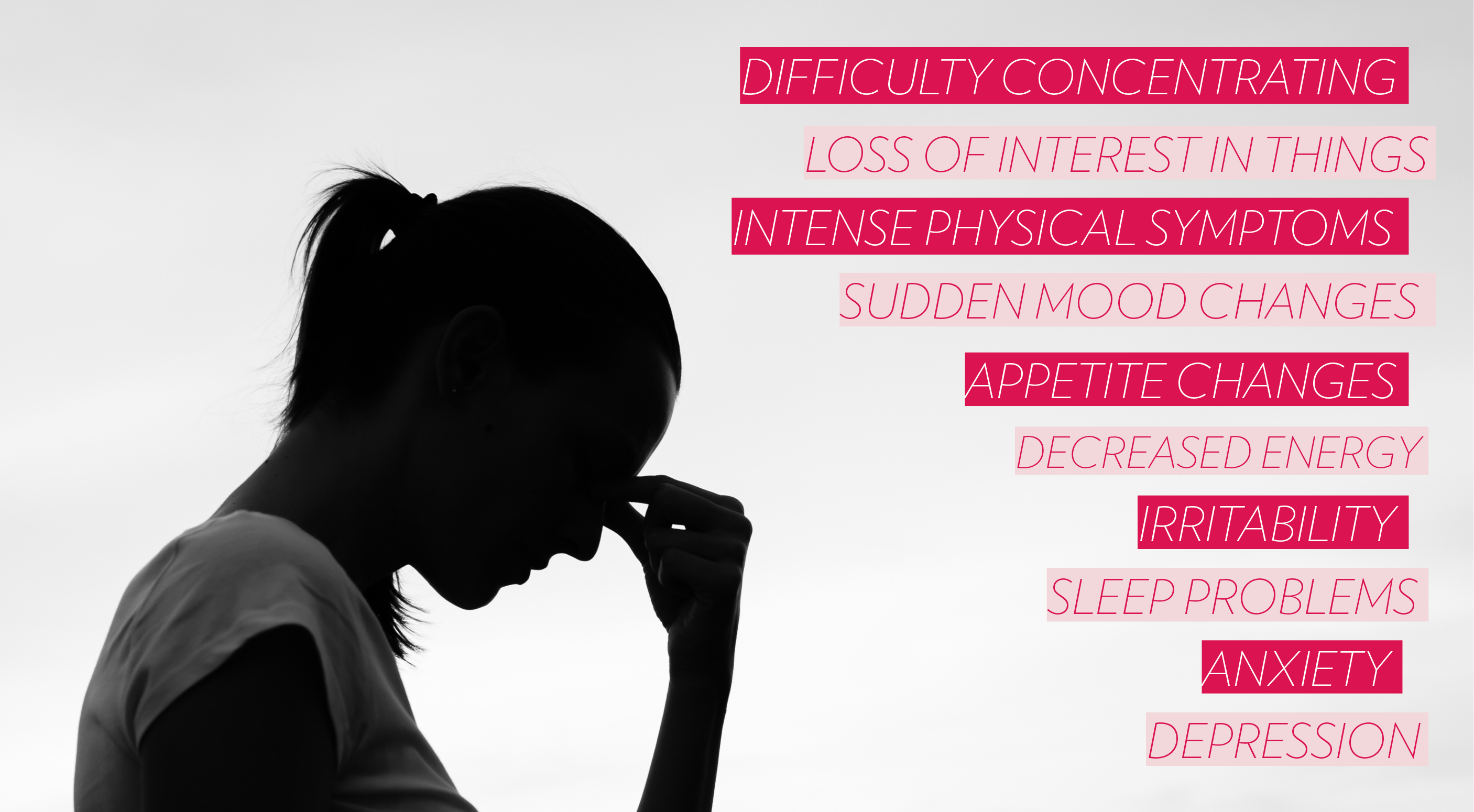Posted: July 1, 2016 Contributor: administrator
Premenstrual Dysmorphic Disorder – AKA PMS on Steroids

Who would have thought that PMS could get any worse?! Well, Premenstrual Dysphoric Disorder, or PMDD, is an extreme form of premenstrual syndrome (PMS) that can cause symptoms so severe that one is unable to go about their everyday life. Like PMS, it follows a predictable pattern and symptoms tend to begin a week or two before one’s period.
How Is It Different Than PMS?
PMDD is more than just a few cramps and bloating. As the condition arises each month, it causes extremely high tension, anxiety, and aggression. For a doctor to diagnose PMDD, a patient must show at least five of the symptoms listed in the photo above. These symptoms are so intense for those struggling with PMDD that it can completely affect one’s daily routine and relationships. According to Harvard Medical School, about 15 percent of women with PMDD attempt suicide.
So, What Are the Chances That I Have PMDD?
PMDD affects between 2-10% of menstruating women, but like PMS, the exact cause is unknown. Many researchers believe that it is caused by the hormonal changes brought on by the menstrual cycle. Other studies have shown that chronic changes in serotonin levels in the brain may cause PMDD, according to WebMD. It’s not clear as to why some women are more sensitive to this condition than others, but genetics may play a strong role. Other risk factors may include high levels of stress, being overweight or obese, and/or a history of sexual abuse or trauma.
Can PMDD be treated?
There are four main types of treatment for this disorder: nutrition, exercise, medication, and therapy. A healthy diet with limited consumption of salt, caffeine, sugar, and alcohol is recommended for those struggling with PMDD. Doctors also promote regular aerobic exercises such as walking or swimming. In addition, certain antidepressants can be prescribed to patients as the FDA has approved three as a treatment for PMDD. Birth control pills, especially continuous pills with no period breaks, can offer some relief help as they regulate hormones in the body. Lastly, therapy is also used to help women cope with this disorder.
Unfortunately, this is one period-related issue that a pint of Ben & Jerry’s and a good rom-com can’t fix. If you think you may have Premenstrual Dysphoric Disorder, see your primary physician for help.
